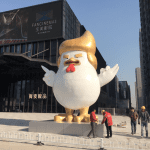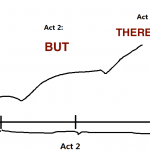“Traditional” views of Chinese culture as so Qing dynasty. That’s what Danny Hsu argues in his recent article in Missiology.

In many respects, Hsu is right. My saying this might surprise some people. Last year, he directly challenged my work in a published article. And, yes, he reiterates his criticism in this recent essay.
However, he doesn’t sufficiently understand of my views and so presents a caricature of my thinking. The journal Studies in World Christianity graciously allowed me to write a response to Hsu longer criticism; my rejoinder will be published in its upcoming April issue.
Talking about (Chinese) culture
I must pause here to give a suggestion for dialoguing about (Chinese) culture. We must be allowed to speak in broad terms when speaking about large cultural characteristics. Cultures are too complex. No one can discuss relevant issues if we are forced to qualify every exception and nuance.
Why do I say this? Many people (like Hsu) object to models that use general categories (e.g., collectivist vs. individualist, guilt vs. honor-shame, etc.). Such criticism is prone to exaggeration. Scholars and practitioners all know that broad labels reflect prominent themes or emphases. Exceptions abound. Reality is a continuum.
This caveat is an important reminder for anyone reading Hsu’s article (and others like it). While likely not intending to do so, writers verge on making strawman arguments by claiming that scholars are saying more than they are.
What Hsu gets right
Differences aside, Hsu highlights several significant points that have implications for missiology. His basic thesis is something like this:
“Traditional” views of Chinese culture are no longer viable; rather, China has a hybrid culture in which individualism is growing more pervasive, especially in cities.
Anyone living in China cannot argue with this. Nothing I’ve written contradicts this claim. Rather, I simply turn our attention to aspects of (traditional) Chinese culture that continue to have a pervasive influence on people, even as younger people become “individuals with Chinese characteristics.”
I’ll list a few highlights from the article, leaving it to you to read the rest.
Regarding social media:
“As a way to avoid the danger of shame and non-conformity to cultural and relational expectations, youth are purposefully turning to social media platforms to construct anonymous identities as a means to learn to express their emotions by interacting with strangers.” (p. 105)
What does Chinese individualism look like? Uncivilized Hybrids?
“[T]he current individualism is the product of a reaction against the state’s former intrusive influence in everyday life under Maoism (which also destroyed many traditional kinship-based community forms) in combination with the current retreat of the state (lack of fostering new forms of civic commitment) and the introduction of a new market-economy ethics (calculated balanced exchange). The result is the rise of what Yan has labeled the “uncivil individual,” whose emphasis on rights is not balanced by an equal respect for other individuals and results in a host of uncaring behaviors and lack of regard for others.” (p. 105)
Regarding China’s lack of narrative:
“In particular, the current crisis experienced by many in China stems from the inability to locate one’s story—and hence, orient one’s life direction— within a greater story…. Yet, this inability to place one’s story within a larger narrative is exactly the predicament that many Chinese presently find themselves.” (p. 107)
I think we should think more earnestly about the link between individualism and the lack of an overarching narrative.
Missiological Implications
Hsu nicely integrates narrative and ethics when he says,
“[I]f the Bible does tell the ultimate story of humanity, then there should be some compelling ways for this story to be communicated within the current Chinese milieu. Here, James K.A. Smith’s suggestion for the church to embrace the narrative nature of the Bible by bringing the “story of Yahweh” to life through the cultivation of liturgical practices and via aesthetic experiences (i.e. literature and art) provides some important ideas for consideration in the Chinese context.” (p. 109)
Ironically, many of Hsu’s suggestions echo traditional Chinese wisdom concerning the cultivation of character. He cites Western theologians but his applications highlight the importance of ritual or liturgy to foster a practical ethic. He writes,
“Contextualization efforts, therefore, should include the development of a cultural literacy/theology of everyday life, an approach Kevin Vanhoozer (2007) and his col- leagues have advocated for the purpose of achieving a Christian understanding of what is happening in culture, why it is happening, and how to respond.” (p. 110)
He reinforces these ideas in contrast to “traditional” (Western) approaches:
“[F]uture contextualization efforts should perhaps place greater focus on the formation of spiritual habits and practices, rather than just the traditional emphasis on winning the mind.” (p. 111)
Hsu has other creative suggestions that deserve attention:
“I would argue, in addition, greater emphasis, both in missions work and research, should also be given to understanding the capacity of music to communicate the narrative of faith to a generation of Chinese seeking greater meaning.” (p. 110)
“In many ways, young Chinese are seeking narratives for their own lives through the stories they read. What are some of these popular stories that grip this generation’s imaginations? Do any of these stories point readers to a reality beyond that of the mundane world?” (p. 110)
I’m thankful for Hsu’s fine scholarship. His essay is a helpful contribution that will he us all to “grapple with the complex and messy realities of Chinese society and culture” (p. 112).













